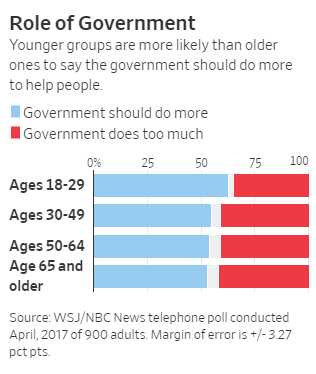Cash Buyers and Liquidity Preference
People looking to buy homes the old-fashioned way--borrowing most of the purchase price--are running into competition from buyers paying cash. At the bottom of the housing market, 2011 and 2012, 40% of sales were cash as Blackstone and other investment groups were scooping up houses for a song. Five years on, prices have bounced and still 28.8% of transactions are in cash. This has some economists scratching their heads.
“Economists said the decision to tie up so much liquidity in a home is puzzling at a time when mortgage rates are near all-time lows,” Laura Kusisto and Christina Rexrode for the Wall Street Journal. But then again, most economists are Keynesians.
Murray Rothbard quoted Modigliani in “Man, Economy and State,” concerning “liquidity preference,”
we should expect that any fall in the rate of interest ... would induce a growing number of potential investors to keep their assets in the form of money, rather than securities; that is to say, we should expect a fall in the rate of interest to increase the demand for money as an asset.
Yet, for houses selling $100,000 and under, over 60% are sold for cash. “Agents say cash buyers span many categories, from investors and wealthy foreigners to downsizing baby boomers, people moving from pricey coastal markets to cheaper ones and millennials getting gifts from parents,” write Kusisto and Rexrode.
Rothbard points out, “In fact, one of the grave defects of the liquidity-preference approach is that the Keynesians never think in terms of three “margins” being decided at once. They think only in terms of two at a time.”
He continues, “People, therefore, allocate their money among consumption, investment, and hoarding. The proportion between consumption and investment reflects individual time preferences. Consumption reflects desires for present goods, and investment reflects desires for future goods. An increase in the demand-for-money schedule does not affect the rate of interest if the proportion between consumption and investment (i.e., time preference) remains the same.”
It is time preference that determines interest rates, Rothbard explains, “To think of the rate of interest as ‘inducing’ more or less saving or hoarding is to misunderstand the problem completely.”
Frustrated would-be buyers are losing homes to cash buyers as sellers look for buyers who can close quickly and not wait through loan underwriting. With so many cash buyers, lenders are responding with loan programs that will make their customers competitive. For instance, “online lender Better Mortgage Corp. is testing a product that would underwrite mortgages within a day, allowing would-be buyers to better compete against cash offers.”
Bank of America Corp. is promoting a product for cash buyers, allowing them to take out a loan of up to 80% of their home’s value soon after they purchase it for cash.
Higher mortgage rates (sometime in our lifetimes) will put a damper of the frenzy for entry-level homes. As Rothbard points out, “interest rates on loans are merely a reflection of price spreads, so that a prediction of higher interest rates really means the expectation of lower prices and, especially, lower costs, resulting in a greater demand for money. And all speculation, on the free market, is self-correcting and speeds adjustment, rather than a cause of economic trouble.”
I think Yellen and Powell will have something to say about that “free-market, self-correcting” part.






